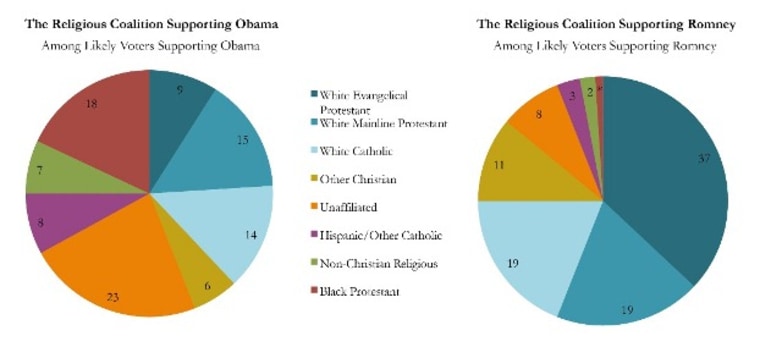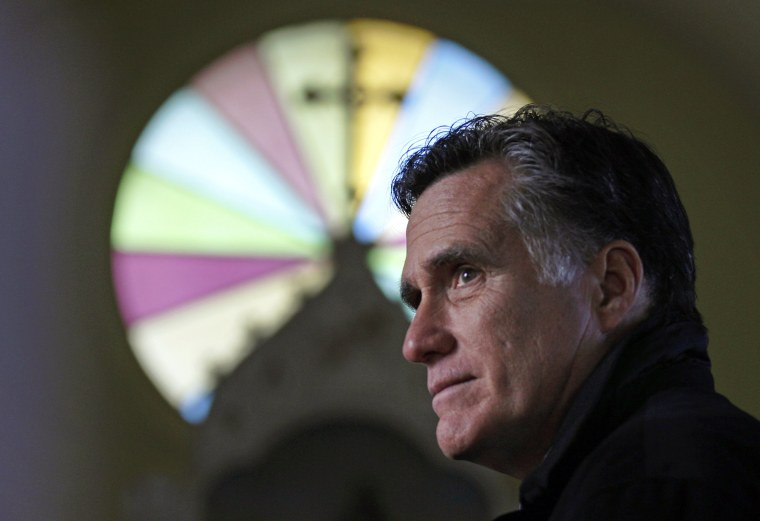A fascinating new study shows Mitt Romney is out of step with most Americans on a key issue of faith.
The 2012 American Values Survey is a non-partisan survey conducted by the Public Religion Research Institute. The researchers surveyed 3,003 people about their religious views last month.
There are three findings worth noting as we head into the final stretch of the election.
1. "Social justice" vs. abortion
The survey found more Catholics believe the Church should focus on helping the poor, even if it means focusing less on "right to life" issues. That runs counter to the position Church leaders have taken.
Mitt Romney's focus on abortion over poverty is out of step with a majority of the Catholics who were surveyed. Back in February, Romney told CNN, "I'm not concerned about the very poor. There's a safety net there, and if it needs repair I'll fix it. I'm not concerned about the very rich, they're doing just fine. I'm concerned about the heart of America, the 95 percent of Americans who are right now struggling."
On the other hand, Romney has spoken frequently about his pro-life stance, and in the most recent debate he complained that the Affordable Care Act would "force" some employers to provide contraception coverage, even if it goes against their religious tenets.
2. Romney's "47 percent" blunder
Romney's comment about the "47 percent" might have struck an even deeper chord than he realized. The survey found that by a 2-to-1 margin, Americans--not just Catholics--think government policies aimed at the poor serve as a crucial safety net. 63 percent say those policies do not create a "culture of dependency". That sentiment runs directly counter to Romney's claims caught on camera back in May:
There are 47 percent of the people who will vote for the president no matter what. All right, there are 47 percent who are with him, who are dependent upon government, who believe that they are victims, who believe the government has a responsibility to care for them, who believe that they are entitled to health care, to food, to housing, to you-name-it. That that's an entitlement. And the government should give it to them. And they will vote for this president no matter what…These are people who pay no income tax.
3. Diversity of support
One more finding sheds an interesting light on the difference between the candidates:

This chart seems to say it all when you consider religious diversity in America. President Obama has a wide base of support, from Christians to non-Christians. The president's policies speak to the heart of a diverse American population. He doesn't need to make promises to one religious group over another, really. Not true of Romney.
The American Values Survey might offer some insight into how Americans will vote. But more importantly, it reveals how Americans hear these candidates, and how they respond to Romney's lack of concern for the poor and his derision for people he believes are dependent on the system.
